Abraham P. Punnen
Multi-strip observation scheduling problem for ac-tive-imaging agile earth observation satellites
Jul 04, 2022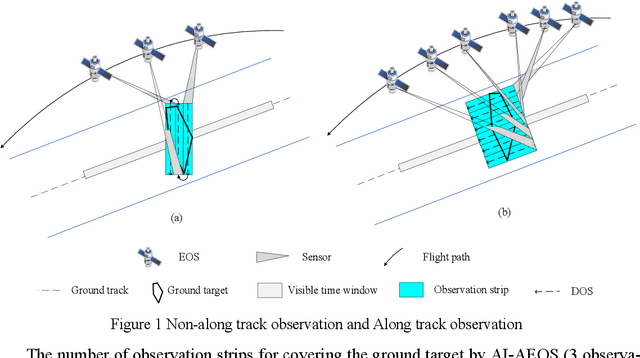
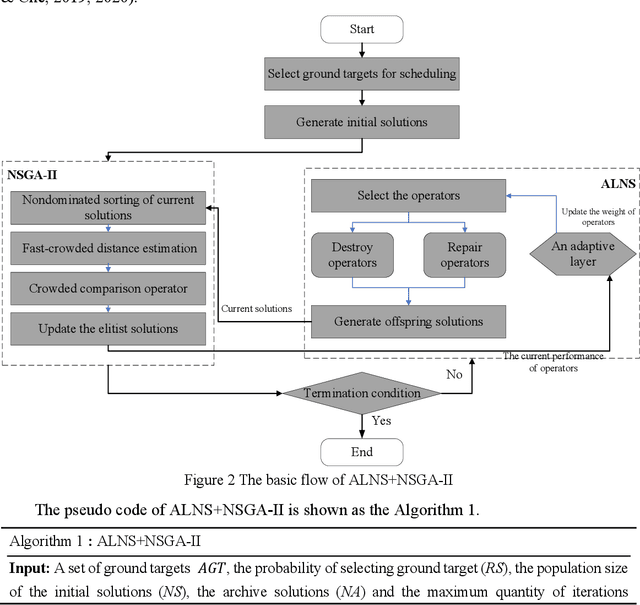
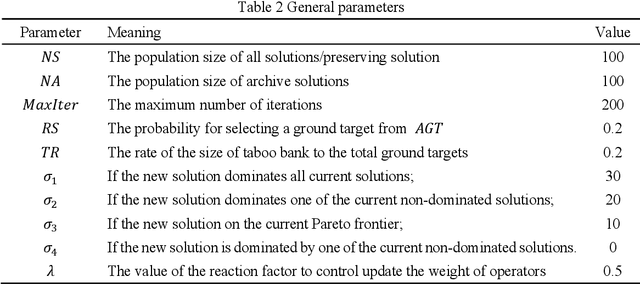
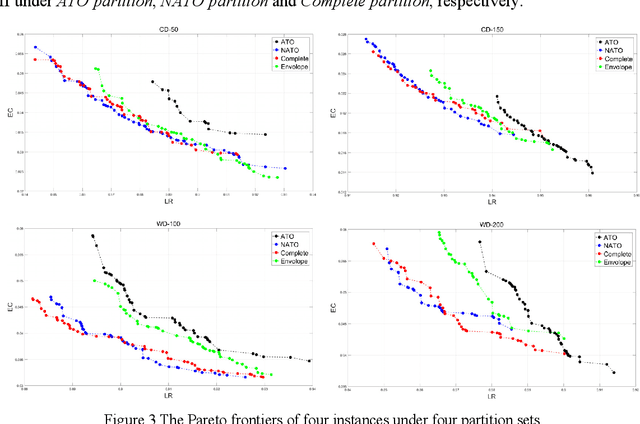
Abstract:Active-imaging agile earth observation satellite (AI-AEOS) is a new generation agile earth observation satellite (AEOS). With renewed capabilities in observation and active im-aging, AI-AEOS improves upon the observation capabilities of AEOS and provide additional ways to observe ground targets. This however makes the observation scheduling problem for these agile earth observation satellite more complex, especially when considering multi-strip ground targets. In this paper, we investigate the multi-strip observation scheduling problem for an active-image agile earth observation satellite (MOSP). A bi-objective optimization model is presented for MOSP along with an adaptive bi-objective memetic algorithm which integrates the combined power of an adaptive large neighborhood search algorithm (ALNS) and a nondominated sorting genetic algorithm II (NSGA-II). Results of extensive computa-tional experiments are presented which disclose that ALNS and NSGA-II when worked in unison produced superior outcomes. Our model is more versatile than existing models and provide enhanced capabilities in applied problem solving.
An adaptive bi-objective optimization algorithm for the satellite image data downlink scheduling problem considering request split
Jun 28, 2022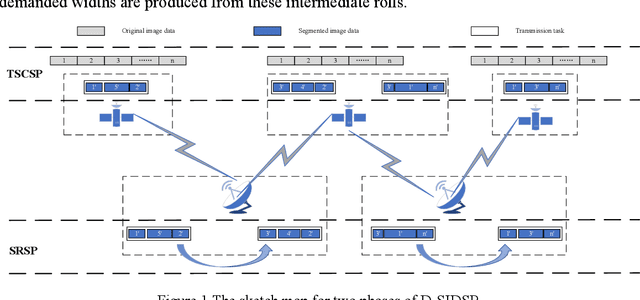
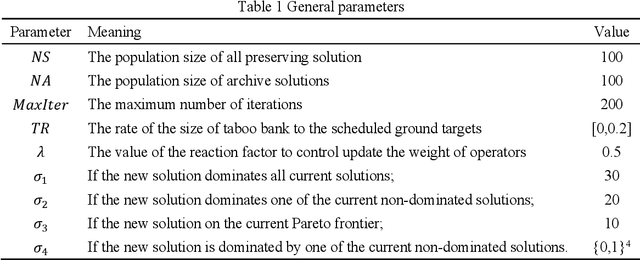
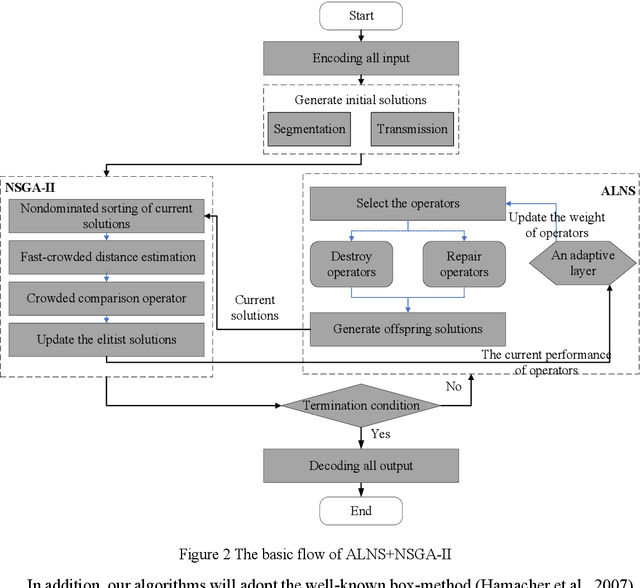
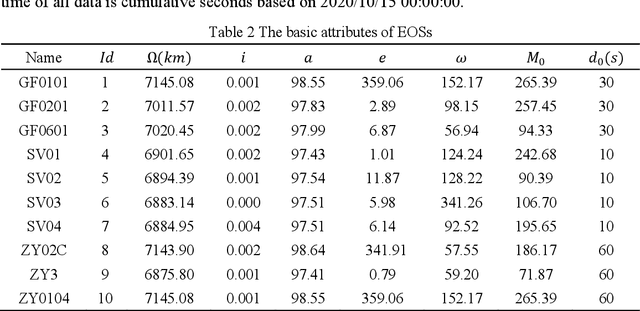
Abstract:The satellite image data downlink scheduling problem (SIDSP) is well studied in literature for traditional satellites. With recent developments in satellite technology, SIDSP for modern satellites became more complicated, adding new dimensions of complexities and additional opportunities for the effective use of the satellite. In this paper, we introduce the dynamic two-phase satellite image data downlink scheduling problem (D-SIDSP) which combines two interlinked operations of image data segmentation and image data downlink, in a dynamic way, and thereby offering additional modelling flexibility and renewed capabilities. D-SIDSP is formulated as a bi-objective problem of optimizing the image data transmission rate and the service-balance degree. Harnessing the power of an adaptive large neighborhood search algorithm (ALNS) with a nondominated sorting genetic algorithm II (NSGA-II), an adaptive bi-objective memetic algorithm, ALNS+NSGA-II, is developed to solve D-SIDSP. Results of extensive computational experiments carried out using benchmark instances are also presented. Our experimental results disclose that the algorithm ALNS+NSGA-II is a viable alternative to solve D-SIDSP more efficiently and demonstrates superior outcomes based on various performance metrics. The paper also offers new benchmark instances for D-SIDSP that can be used in future research works on the topic.
Markov Chain methods for the bipartite Boolean quadratic programming problem
Oct 24, 2016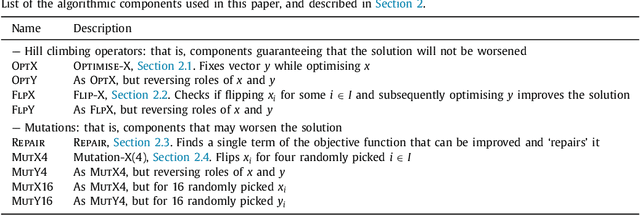
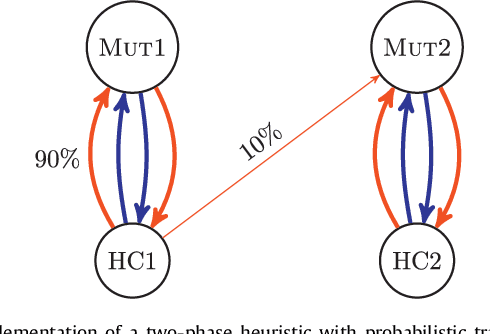

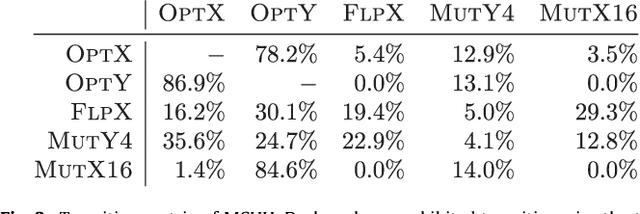
Abstract:We study the Bipartite Boolean Quadratic Programming Problem (BBQP) which is an extension of the well known Boolean Quadratic Programming Problem (BQP). Applications of the BBQP include mining discrete patterns from binary data, approximating matrices by rank-one binary matrices, computing the cut-norm of a matrix, and solving optimisation problems such as maximum weight biclique, bipartite maximum weight cut, maximum weight induced sub-graph of a bipartite graph, etc. For the BBQP, we first present several algorithmic components, specifically, hill climbers and mutations, and then show how to combine them in a high-performance metaheuristic. Instead of hand-tuning a standard metaheuristic to test the efficiency of the hybrid of the components, we chose to use an automated generation of a multi-component metaheuristic to save human time, and also improve objectivity in the analysis and comparisons of components. For this we designed a new metaheuristic schema which we call Conditional Markov Chain Search (CMCS). We show that CMCS is flexible enough to model several standard metaheuristics; this flexibility is controlled by multiple numeric parameters, and so is convenient for automated generation. We study the configurations revealed by our approach and show that the best of them outperforms the previous state-of-the-art BBQP algorithm by several orders of magnitude. In our experiments we use benchmark instances introduced in the preliminary version of this paper and described here, which have already become the de facto standard in the BBQP literature.
Integrating tabu search and VLSN search to develop enhanced algorithms: A case study using bipartite boolean quadratic programs
May 24, 2013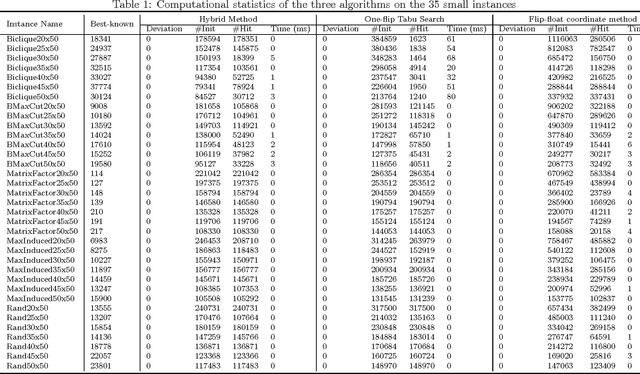
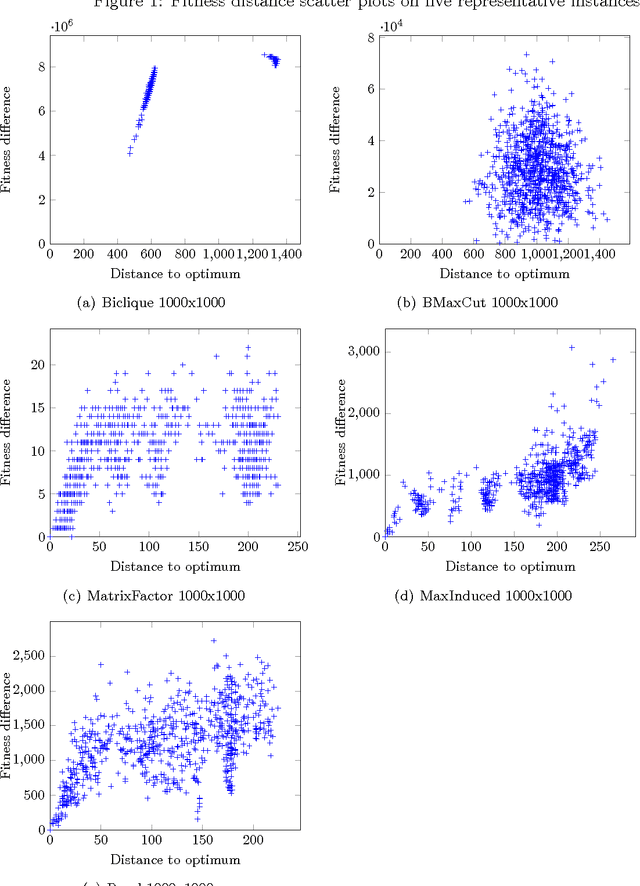
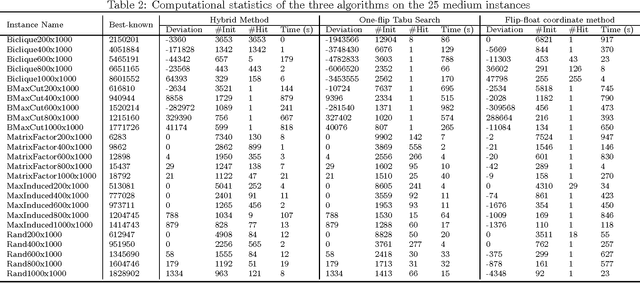
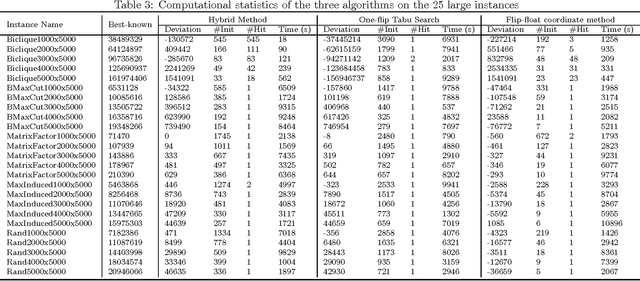
Abstract:The bipartite boolean quadratic programming problem (BBQP) is a generalization of the well studied boolean quadratic programming problem. The model has a variety of real life applications; however, empirical studies of the model are not available in the literature, except in a few isolated instances. In this paper, we develop efficient heuristic algorithms based on tabu search, very large scale neighborhood (VLSN) search, and a hybrid algorithm that integrates the two. The computational study establishes that effective integration of simple tabu search with VLSN search results in superior outcomes, and suggests the value of such an integration in other settings. Complexity analysis and implementation details are provided along with conclusions drawn from experimental analysis. In addition, we obtain solutions better than the best previously known for almost all medium and large size benchmark instances.
 Add to Chrome
Add to Chrome Add to Firefox
Add to Firefox Add to Edge
Add to Edge